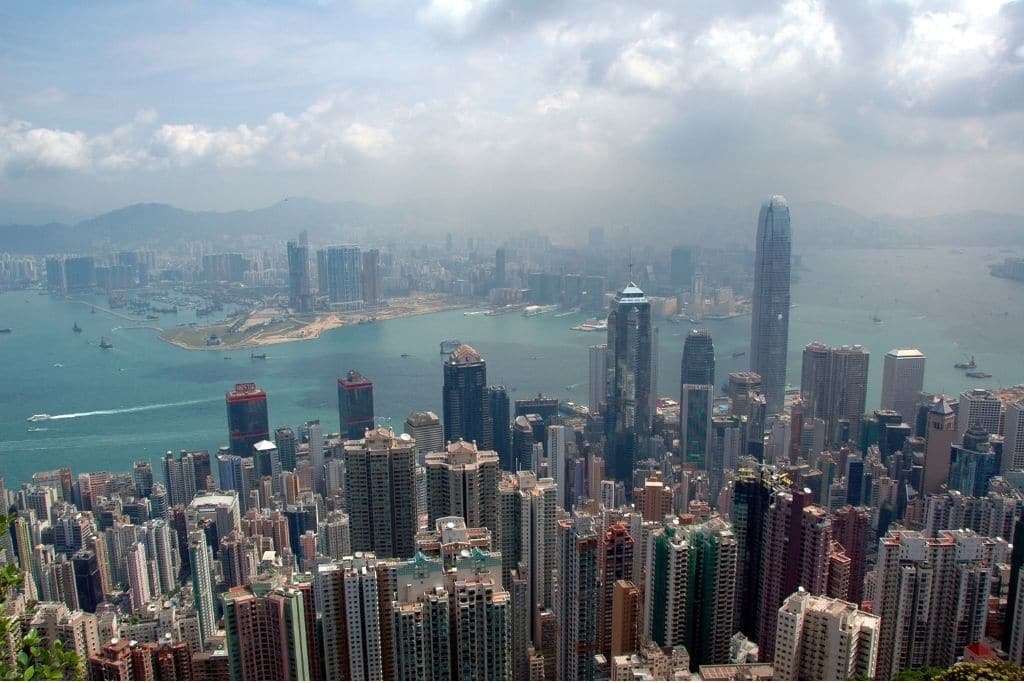As young climate activists congregate around the world to mobilise climate action, Hong Kong’s youth are also urging the local government to take more ambitious action to curb the climate crisis. Nominated by CarbonCare InnoLab, six Hong Kong youth delegates to COP26 have published a petition and shared their thoughts with Secretary for the Environment Wong kam-sing regarding the city’s climate change policies. The delegates share their experience at the recent COP26 in Glasgow, pointing out lessons Hong Kong can apply to accelerate the transition to net zero.
—
The global climate crisis has seen youth from around the world mobilise movements, take part in school strikes, and advocate for ambitious actions to curb the ongoing climate crisis. Climate activists such as Greta Thunberg and Mitzi Jonelle Tan are taking it upon themselves to urge world business leaders and governments to limit global warming to 1.5C pre-industrial levels, believing “the power is in us, not the leaders.”
In Hong Kong, the environment and climate have never been front and centre in the socio-economic agenda, but the city’s COP26 youth delegates are trying to change this.
Nominated by CarbonCare InnoLab, Hermia Chan, Mark Cheung, Ryan Fung, Blaire Ho, Ho Wai-fun and Priscilla Lin attended COP26, the UN climate summit, in Glasgow earlier in November. They were joined by four more delegates representing other Hong Kong-based political organisations and nonprofits.
Hong Kong Needs More Ambitious Climate Change Policies
Earlier in October, the six youth delegates published a petition urging the Hong Kong government to take more ambitious climate change policies and actions. The document began with an overview of why the city needs more ambitious climate change policies and ended with the delegates’ five key demands. Among other factors, the key demands included a call for the government to declare a climate emergency, to reach net zero emissions by the 2040s or sooner, and to increase the proportion of renewable energy in the energy portfolio to 20% by 2030.
Before their departure to Glasgow, the delegates spoke to Secretary for the Environment Wong Kam Sing. Wong was open to the delegate’s opinions and asked for their suggestions on how to achieve carbon neutrality before 2050.
“Wong shared what he was proud of about Hong Kong’s climate mitigation and adaptation activities so far… he emphasised Hong Kong’s climate adaptation expertise, explaining that our experts are advising other Asian cities on strategies such as how to mitigate the urban heat island effect,” said Chan, one of the aforementioned Hong Kong youth delegates.
Although the delegates agree with the Environment Secretary that flooding is the most significant risk to Hong Kong citizens, they believe more action on other aspects of climate change policies should be taken. For instance, they would like to see more detailed plans and a concrete timeline regarding how the government will increase the availability of renewable energy and implement a carbon trading scheme. Chan adds, “The thing with climate change is that we don’t have time to waste. Do we have time to wait for the best model? Will the best model ever even exist?”
You might also like: 6 Biggest Environmental Issues in Hong Kong in 2021
What Lessons Can Hong Kong Learn from COP26?
Attending COP for the first time this year, the delegates did not have a specific agenda, intending only to observe and learn about climate initiatives that can be applied to Hong Kong. The delegates’ observer passes allowed them to sit in on panels happening in different ‘zones’, however, they expressed a desire to more actively participate and take part in negotiations.
“Observer passes limit us to only being able to ‘observe’ and not actually submit questions during most events,” explained Chan. She also commented that because
Hong Kong is not a ‘Party to the Convention’ at COP26, the city’s role at the summit was somewhat ambiguous. “The ambiguity made it difficult for us to apply for a ‘Party Badge’, which would mean more opportunities for more meaningful participation.”
Hong Kong’s delegates took part in various youth events at COP26, including speaking at the ‘Asian Youth Dialogue on Carbon Neutrality’ event at Korea’s Pavilion. These panels were attended by youths as well as representatives from different countries and organisations, a platform that allowed youth delegates’ voices to be heard. However, the delegates have reservations about whether their opinions would be taken seriously, or whether youth opportunities at COP26 is a form of ‘youthwashing’ or tokenism.
“During some of the negotiations, some youths limited themselves to note taking although they have the right to voice their opinions. I’m not sure whether they chose to do this or were asked to take more passive roles,” Chan said.
When asked what lessons Hong Kong can learn from countries and stakeholders at COP26, the delegates highlighted human rights considerations and green construction as two important factors.
Listening to Indigenous tribes speak about how some climate mitigation policies affected their rights, the delegates felt Hong Kong needs to put human rights at the forefront of climate policy. Similar to many other countries, Hong Kong’s Climate Action Plan 2050 focuses on how to decarbonise sectors through measures such as transitioning to electric vehicles and waste reduction, whereas the effects our environmental footprint have on other areas around the globe are rarely considered. The delegates believe that as a city that imports most of our goods, we should also consider how the production processes of these goods are adversely affecting the livelihoods of citizens in the producing countries.
Secondly, the delegates think the Norwegian city of Oslo’s green construction practices can be adapted to Hong Kong’s construction industry. Globally, building and construction are responsible for 39% of emissions. And in Hong Kong, construction sites are often considered a nuisance by citizens because of the noise and dust pollution it generates.
Hong Kong may be able to take inspiration from Oslo’s zero emissions construction sites. Oslo’s first zero–emission construction site was pioneered in 2019. Powered by electricity, the machinery used on ‘Olav V’s gate’ emitted less noise and air pollution. Using electricity instead of fossil fuels saved 35,000 litres of diesel and 92,500 kg of carbon emissions. The Norwegian government also took a strategic move to incentivise the industry to switch to electric machinery by awarding public tenders for construction work to developers using zero emission machinery. While Hong Kong’s current policies focus on adapting existing buildings to make them greener, the delegates believe that “greening the buildings industry” should start from cleaning up the construction phase.
Going forward, the delegates will continue to push for having their five demands met by the Hong Kong government. “We hope to continue our conversations with [Secretary] Wong and be able to share Hong Kong’s more ambitious climate change policies at next year’s COP”, Chan concludes. “We also hope to work on climate advocacy with more youths in Hong Kong. As we all deserve to be heard,“ Chan’s fellow delegate Blaire Ho added.
Many climate activists and environmental organisations claim COP26 was a failure because governments failed to agree on important pledges, such as phasing out coal. Despite this, it is enlightening to hear the ambitions of Hong Kong’s youth’s delegates, who are determined to accelerate the city’s journey to carbon neutrality before 2050.
You might also like: Transforming Climate Education in Hong Kong


















